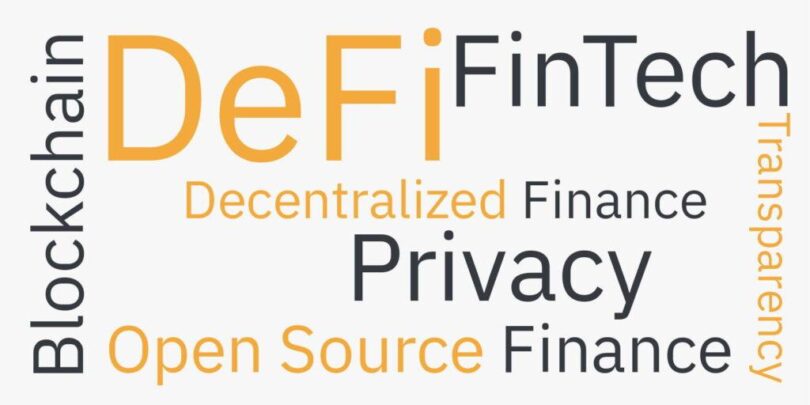We’ve become used to centralized social networks where our posts, comments, likes and follows are’stored centrally in a single one. But what if social networking was decentralized, where all of those interactions could exist and be made available without a centralized entity, giving us a true, grassroots version of the modern online conversation? Decentralized social networks are redefining the way we interact with each other and how our thoughts and ideas can be distributed in a secure, peer-to-peer environment. With these platforms, conversations can become more secure, more adaptable, and completely free from censorship or exploitation. Read on to learn more about how decentralized social networks are changing the game and presenting new possibilities for conversation and collaboration online.
1. Introduction to Decentralized Social Networks
Decentralized social networks (DSN) have been gaining attention over the past few years due to their promise of bringing people together in a more transparent, secure, and private manner than existing centralized solutions. In this post, readers will learn about the features of decentralized social networks, why they are growing in popularity, and the potential they hold for redefining how we interact in and out of digital realms.
What is Decentralization?
Decentralization is the process of distributing control to many entities instead of a single point. This means that DSNs don’t require a single, powerful entity to host and manage user data and interactions. Decentralization also refers to distributing data among multiple points, creating ’blocks’ that must be unlocked through authentication and encryption methods - which adds an additional layer of security.
Why Decentralization is Important
When a centralized entity holds data, it is vulnerable to exploitation and manipulation. Decentralization eliminates that risk by distributing the control of the data across multiple entities. Furthermore, decentralizing data means that it is immutable and tamper-proof, making manipulation and exploitation impossible. This makes decentralized social networks ideal for businesses, organizations, and individuals who value privacy and security.
The Benefits of Decentralization
- Increased data privacy and security
- Improved user control over data and interactions
- More transparent services
- Improved scalability
- Reduced chances of exploitation
Decentralization also offers users the freedom to communicate without fear of their data and discussions being accessed and monitored by third parties. Additionally, decentralization means that the platform can be used to store and transfer value in ways that no centralized system can.
Decentralized Social Networking Platforms
One of the most popular decentralized social networking platforms on the market today is Mastodon. Developed on the open-source platform GNU Social, Mastodon is a powerful platform used by more than 2 million users, offering features such as encrypted conversations, limitless account creation, and a timeline moderation feature known as ”happiness.”
Other popular decentralized social networking platforms include Steemit, Akasha and Minds. Each of these platforms offers a unique feature set and value. For example, Steemit offers users the ability to create Your Own Blogs (YOBs) that can be shared with an unlimited number of followers, while Akasha makes it easy to store content on the Ethereum blockchain.
Conclusion
Decentralized social networks provide users with an unprecedented level of control, privacy, and security over their data and interactions. By leveraging distributed data storage and intelligent cryptography, these platforms can help create a vastly more secure and transparent digital world. So, if you’re looking to stay connected securely, while also maintaining your privacy, decentralized social networks are the way to go!
2. What are the Benefits of a Decentralized Network?
Connectivity
- A decentralized social network has an extensive range of nodes, allowing people to connect from anywhere.
- Since nodes are dispersed across many locations, users have the option to move from one node to another quickly.
- Furthermore, decentralized networks are not reliant on any one single authority, so communication is not limited by geographical boundaries.
Open Platforms
- Using open source software within a decentralized social network, developers can innovate and create applications open to everyone.
- New digital tools and platforms can be released for free without needing to go through a central authority.
- A system where users have a vested interest in its growth, makes it easier for these new projects to blossom on the network.
Privacy & Security
- Unlike traditional centralized networks, decentralized social networks are not open to the same security flaws that come with a centralized system.
- Since there is no central authority with access to all user data, it’s much more difficult for malicious actors to breach users’ data.
- Moreover, a decentralized network allows for more robust user privacy, since the type of data that a user shares is up to them and is not controlled by a central entity.
Content Quality
- In a decentralized social network, users are the content, which encourages members to create more meaningful content.
- The idea is that people are more likely to share valuable insights when they know that their content won’t be removed by an anonymous entity.
- Moreover, since users are in control of their own content, they can modify it any way that they see fit without needing to follow the guidelines of a centralized entity.
3. Understanding the Structure and Technology of Decentralized Social Networks
Modern social networks have disrupted nearly every media and communication industry. Today, we’re in the midst of a major shift away from the centralized, server-centric networks of the past and toward the new decentralized, blockchain-based networks of the future. These new networks have the potential to revolutionize the way we interact with each other, offering unprecedented levels of privacy and security. But what exactly are decentralized social networks, and what makes them so different from the more traditional networks?
On a basic level, decentralized social networks are powered by distributed ledgers, such as the blockchain. This means that data is stored on multiple computers across the network, rather than on a central server. This makes the network far more secure, since any hack would have to first target multiple computers in order to gain access to the data. Additionally, since the data is spread across multiple computers, it is impossible for any individual node to be shut down or censored by a third party. This gives decentralized networks an inherent resistance to censorship and manipulation, which makes them far more resilient than traditional networks.
Advantages of Decentralized Networks
- Decentralized networks provide users with more control over their data.
- Data can be securely stored on multiple computers, rather than on a single server.
- Decentralized networks are resistant to censorship and manipulation.
- Transactions are completed on a peer-to-peer basis, eliminating the need for a third party.
- Decentralized networks typically require less energy to maintain than traditional networks.
Though decentralized social networks are still in their infancy, we can already see the potential these networks offer for redefining the way we interact with each other. By combining the power of distributed ledgers with the advantages of peer-to-peer networks, decentralized social networks have the potential to revolutionize the way we share and communicate online.
4. Implications of Decentralized Social Networks on Interaction
The shift from centralized to decentralized social networks has had profound implications on how we interact with each other. The general public now has more control over their data and the potential to create their own networks.
- Data Control: Decentralized networks give users control over their data. Because the data is stored on the user’s own machine, nobody else can access it without permission. This reduces the risk of exploitation from data conglomerates or hackers.
- Censorship Resistance: On a decentralized network, there is no central authority that can impose its will on users by censoring posts or banning accounts. Even if some nodes are taken down for whatever reason, the network will still remain connected.
- Organic Networks: People are now no longer confined to the networks that exist. They have the ability to create networks that better reflect their needs and ideals. This allows for a more organic flow of communication, as the interactions are based on personal connections.
- Enhanced Digital Experiences: Decentralized networks also open up new opportunities for enhanced digital experiences. They allow for the creation of new technologies, such as distributed applications and artificial intelligence solutions, that rely on the collective wisdom of the network.
Decentralized social networks have the potential to completely redefine how people interact with each other. Users will have more control over their data and be able to create their own networks. This will enable organic relationships to form, and provide new opportunities for enhanced digital experiences. It’s clear that decentralized networks are leading us into a new era of social interaction that promises to be more open, secure, and enjoyable.
5. The Future of Decentralized Social Networks
In recent years, decentralized social networks have emerged as the next iteration in how we interact online. These networks offer users more freedom, control, and security than traditional, centralized networks. With their flexibility and distributed nature, they are redefining our understanding of interactivity, allowing users to create and explore new worlds of online communication.
1. Increased Autonomy
Decentralized social networks allow users to communicate with a degree of autonomy that was previously unavailable on traditional networks. On these networks, users can form small communities, create unique online identities, and select who they wish to share information with. This provides the user with a large degree of control over who sees their content and how it is received.
2. Improved Security
On decentralized networks, user data is stored on multiple servers, making it impossible for hackers to access. In addition, the networks are often secured with encryption, meaning that the data remains private and secure. This helps to prevent unwelcome third-party interference, and also allows users to have greater trust in the systems.
3. Enhanced User Experience
Decentralized networks often offer a richer, more engaging user experience than traditional networks. With features such as dispute resolution systems, trust protocols, and censorship-resistance, they make it easier for users to express themselves and interact with each other in meaningful and secure ways.
4. Increased Interoperability
Decentralized networks offer increased interoperability, meaning that users can access and share data across multiple networks without losing the context or structure of the original content. This enables users to easily transfer content between systems, as well as create new connections between networks.
5. Reduced Cost
Because of the distributed nature of decentralized networks, users can often avoid the costs associated with hosting and maintaining traditional networks. This makes decentralized social networks more accessible to a wider range of users, and also makes it easier to create and maintain complex systems.
6. Final Recommendations
Now that we’ve discussed all the various components of decentralized social networks and the associated benefits, we can arrive at our final recommendation. To realize these benefits in full, it’s recommended that companies approach this new technology with the right mindset. It should be viewed as an opportunity for an entirely new approach to digital interactions, instead of simply a new way to market products and services.
1.Be Open to Experimentation: As decentralized social networks go through the process of scaffolding, it’s important to remain flexible and try different approaches to get the best out of the technology. Companies should look for opportunities to experiment with the technology to discover and understand all its nuances.
2.Focus on Closed-Loop Innovation: It’s also important to focus on creating a closed-loop innovation cycle by utilizing user feedback. This will enable companies to quickly and accurately identify problems and opportunities. Doing so increases the chances of success in the development of distributed applications and creating rewarding user experiences.
3.Form Strategic Alliances: We also recommend forming strategic alliances with existing networks and ecosystems. This will make it easier for companies to adopt distributed technology and benefit from the collaborative and connected nature of the technology.
4.Set Goals: Lastly, establish specific goals and track progress. Do this by setting milestones and tangible targets to measure progress. This will give companies the ability to respond quickly to the new opportunities and challenges posed by decentralization.
In conclusion, decentralized social networks have the potential to revolutionize digital interactions and produce some incredibly exciting outcomes. But to reap the full benefits of the technology, companies should look for opportunities to experiment, focus on closed-loop innovation, form strategic alliances, and set goals. Doing all that, and the sky is the limit.
The development of decentralized social networks is quickly transforming our online lives, enriching them with more secure, private, and interconnected ways of interacting with one another. As the technology improves, the potential impact of these networks will continue to grow, further adding to and deepening our lives in meaningful and sustainable ways.








Leave a Comment